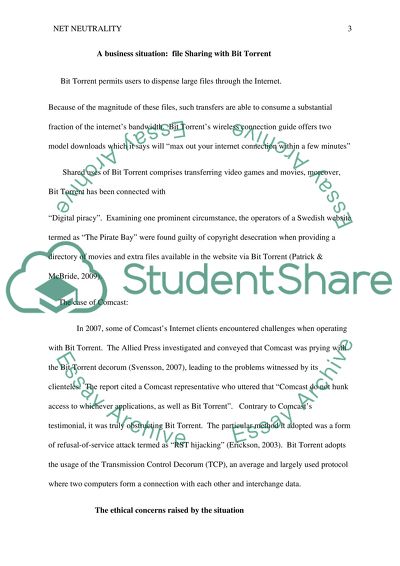Cite this document
(“The Importance of Net Neutrality Term Paper Example | Topics and Well Written Essays - 2000 words”, n.d.)
Retrieved from https://studentshare.org/law/1669350-the-importance-of-net-neutrality
Retrieved from https://studentshare.org/law/1669350-the-importance-of-net-neutrality
(The Importance of Net Neutrality Term Paper Example | Topics and Well Written Essays - 2000 Words)
https://studentshare.org/law/1669350-the-importance-of-net-neutrality.
https://studentshare.org/law/1669350-the-importance-of-net-neutrality.
“The Importance of Net Neutrality Term Paper Example | Topics and Well Written Essays - 2000 Words”, n.d. https://studentshare.org/law/1669350-the-importance-of-net-neutrality.


